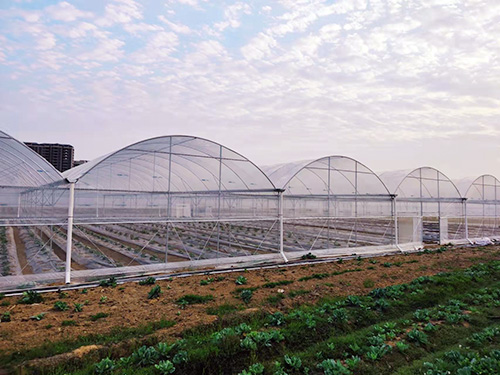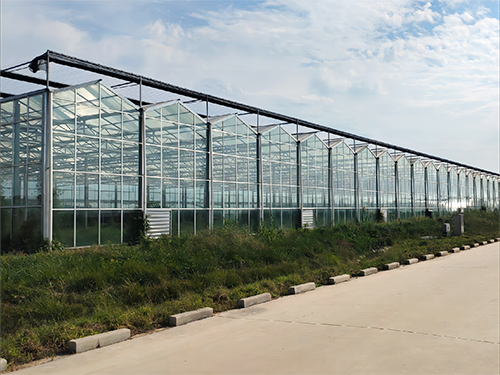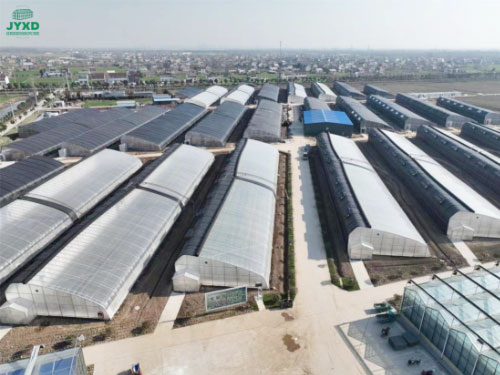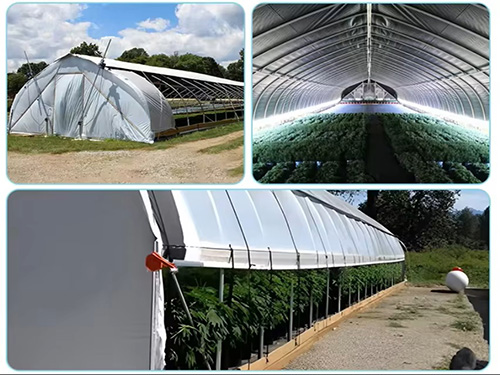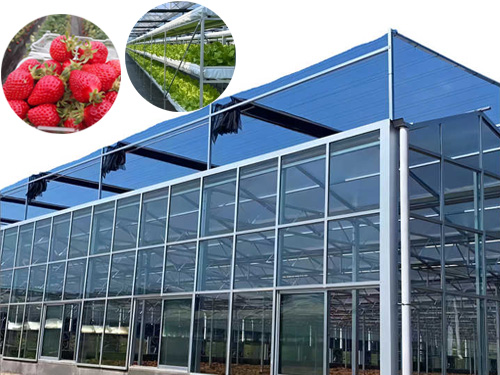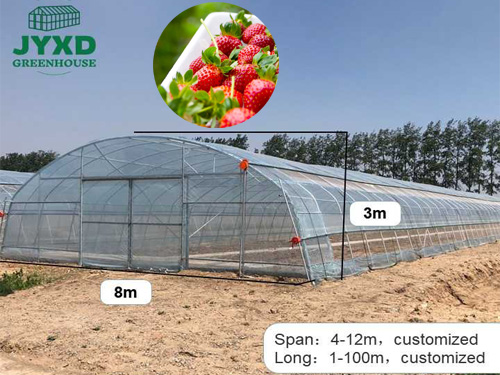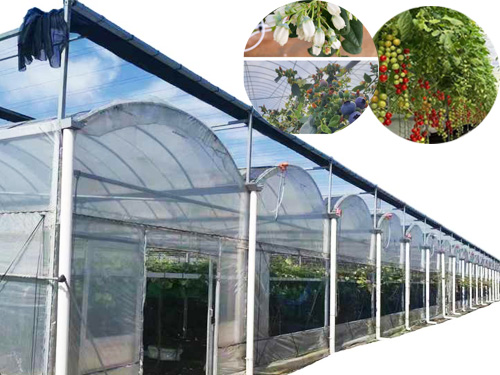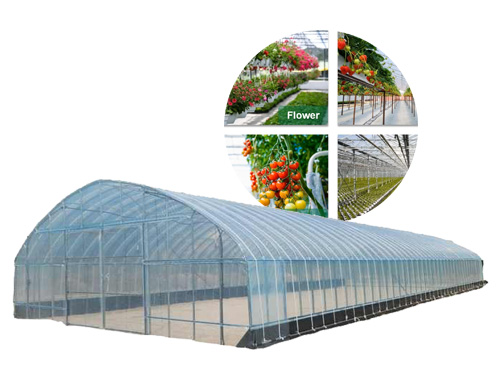NEWS DETAILS
NEWS INFORMATION
Greenhouse Plant Nutrition Management: Precision Fertilization and Nutrient Solutions
AUTHOR:jyxd-greenhouse DATE:2025-03-09 13:37:14 HITS:102
In greenhouse agriculture, the key to successful crop production lies not only in environmental control but also in effective plant nutrition management. Proper nutrition ensures that plants receive the right balance of nutrients to promote healthy growth, enhance yield, and improve resistance to diseases. However, given the confined space of a greenhouse and the artificial growing conditions, maintaining optimal plant nutrition can be challenging. Precision fertilization and tailored nutrient solutions are essential for managing plant health and achieving consistent, high-quality crops. This article explores the importance of greenhouse plant nutrition management, the principles of precision fertilization, and practical nutrient solutions to optimize crop growth.
1. The Importance of Proper Plant Nutrition in Greenhouses
Greenhouse plants depend entirely on the nutrients provided by the grower, as they do not have access to the natural soil ecosystem. Providing the right balance of macro and micronutrients is vital for plant health, photosynthesis, and overall development. Key benefits of effective plant nutrition management in greenhouses include:
• Maximized Crop Yield: Proper nutrition supports vigorous plant growth, which translates to higher yields and more abundant harvests.
• Enhanced Plant Health: Nutrients help plants develop a strong immune system, enabling them to resist diseases, pests, and environmental stress.
• Efficient Resource Use: With precision fertilization, greenhouse operators can minimize waste, reduce costs, and improve the environmental sustainability of their operations.
• Improved Fruit and Flower Quality: Proper plant nutrition is essential for ensuring the size, color, taste, and overall quality of fruits and flowers grown in greenhouses.
To achieve these benefits, it is crucial to focus on the precise delivery of nutrients, as even small imbalances can lead to deficiencies, toxicity, or poor plant performance.
2. Key Nutrients for Greenhouse Crops
Plants require a variety of nutrients for healthy growth, which are typically categorized into macronutrients and micronutrients:
Macronutrients
These are essential nutrients required in larger quantities for plant growth. They include:
• Nitrogen (N): Promotes vegetative growth and is vital for chlorophyll production.
• Phosphorus (P): Supports root development, energy transfer, and flower and fruit production.
• Potassium (K): Enhances overall plant health, improves drought resistance, and strengthens cell walls.
• Calcium (Ca): Crucial for cell wall structure and overall plant stability.
• Magnesium (Mg): Central to chlorophyll production and photosynthesis.
• Sulfur (S): Involved in protein synthesis and enzyme function.
Micronutrients
Although needed in smaller quantities, micronutrients are equally important for plant health. These include:
• Iron (Fe): Supports chlorophyll synthesis and energy production.
• Manganese (Mn): Involved in photosynthesis and enzyme activation.
• Zinc (Zn): Important for growth regulation and protein synthesis.
• Copper (Cu): Essential for metabolic processes and photosynthesis.
• Boron (B): Vital for cell division and reproductive growth.
• Molybdenum (Mo): Plays a role in nitrogen metabolism.
A well-balanced supply of these nutrients ensures that plants can grow optimally, produce high-quality yields, and resist stressors such as diseases or pests.
3. Precision Fertilization in Greenhouses
Precision fertilization involves applying the right amount of nutrients at the right time, ensuring that plants receive the exact nutrition they need without excess or deficiency. This approach reduces the risk of nutrient imbalances, minimizes fertilizer waste, and optimizes crop growth. The key aspects of precision fertilization include:
3.1 Nutrient Monitoring
Accurate nutrient monitoring is the first step in precision fertilization. Regular soil tests or plant tissue analysis can help determine the nutrient levels in the growing medium and identify any deficiencies or imbalances. In hydroponic systems, continuous monitoring of nutrient solution concentration can be used to adjust fertilization in real-time.
3.2 Fertilizer Application Methods
The method of fertilizer application plays a significant role in ensuring precision. Common methods include:
• Fertigation: The process of delivering water-soluble fertilizers through the irrigation system allows for precise control over the nutrient delivery to plants. This method ensures that the nutrients are evenly distributed and absorbed by the plant roots.
• Foliar Feeding: Spraying liquid fertilizers directly onto the plant leaves allows for rapid nutrient uptake, particularly for micronutrients. Foliar feeding is especially useful when a plant shows signs of deficiency and requires quick correction.
• Slow-Release Fertilizers: These fertilizers release nutrients gradually over time, reducing the frequency of application and providing a continuous supply of nutrients to plants. They are ideal for long-term greenhouse crops.
3.3 Customizing Fertilization Schedules
Each crop has specific nutrient requirements throughout its growth cycle. For example, during the vegetative stage, plants may require more nitrogen to promote leaf growth, while during flowering or fruiting, they may need higher levels of phosphorus and potassium. Tailoring fertilization schedules to the growth stages of the plant ensures that nutrients are provided in the most beneficial amounts.
4. Nutrient Solutions for Different Greenhouse Systems
Greenhouses use a variety of growing systems, each of which may require different nutrient solutions. The most common systems include soil-based, hydroponic, and aeroponic systems. Below are some considerations for plant nutrition in each system:
Soil-Based Greenhouses
In traditional soil-based greenhouses, nutrients are typically provided through organic fertilizers, compost, or synthetic fertilizers. These fertilizers are applied to the soil and absorbed by the plant roots. To ensure balanced nutrition, regular soil tests should be conducted to monitor pH, nutrient levels, and organic matter content.
Hydroponic Greenhouses
Hydroponic systems, where plants grow in nutrient-rich water without soil, require precise nutrient management. Nutrient solutions are carefully formulated to provide all the essential macro and micronutrients in a form that is readily available to the plants. Regular monitoring of the pH and electrical conductivity (EC) of the nutrient solution is critical to ensure that the solution remains balanced and within the optimal range for plant growth.
Aeroponic Greenhouses
In aeroponic systems, where plant roots are suspended in air and misted with nutrient-rich solutions, precise nutrient delivery is even more important. These systems require frequent monitoring to ensure the nutrient mist remains at the correct concentration, as the roots are highly exposed and sensitive to fluctuations in nutrient levels.
5. Sustainable and Organic Nutrient Solutions
As environmental sustainability becomes an increasing priority in agriculture, many greenhouse growers are turning to organic and eco-friendly nutrient solutions. Organic fertilizers, such as compost, worm castings, and fish emulsion, provide essential nutrients while enhancing soil biology and structure. Additionally, biostimulants and organic supplements like seaweed extract and humic acids can support plant health and improve nutrient uptake.
By choosing sustainable nutrient solutions, greenhouse operators can reduce their environmental impact, improve soil health, and produce crops that meet consumer demand for organic and eco-friendly products.
6. Conclusion
Effective plant nutrition management is crucial for the success of greenhouse farming. Precision fertilization techniques, tailored nutrient solutions, and regular monitoring ensure that plants receive the right nutrients in the right amounts, leading to healthy growth, improved yields, and high-quality crops. Whether growing in soil, hydroponic, or aeroponic systems, implementing an efficient nutrition management plan is essential for maximizing productivity and sustainability in the greenhouse.
Are you interested in learning more about specific nutrient solutions for your greenhouse or optimizing fertilization schedules for particular crops? Let us know how we can assist you in enhancing your greenhouse farming practices.
Hebei Juyou Xinda Greenhouse Facilities Co.,Ltd.
Copyright © 2024-2025 https://www.jyxd-greenhouse.com. All Rights Reserved Hebei Juyou Xinda Greenhouse Facilities Co.,Ltd.Copyright




 Current Location:
Current Location: